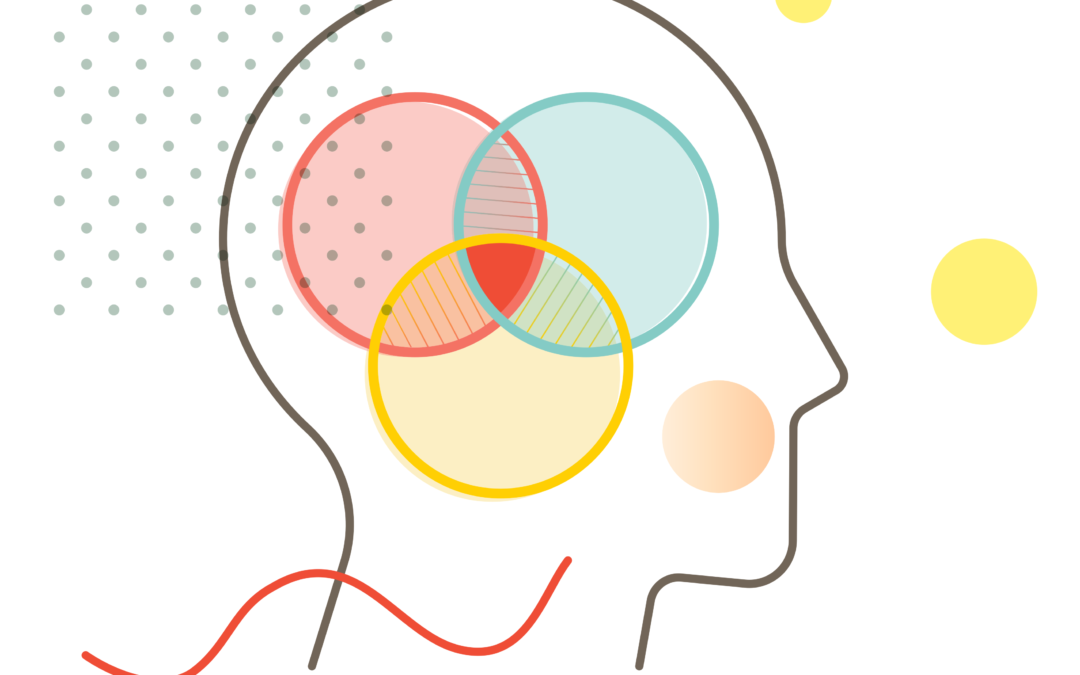Comorbidities of mental health are much more common than many people realize, and one of the most common comorbidities is co-occurring eating disorders and mental health issues. Also, the statistics significantly back this up. According to Psychiatry and Clinical Psychopharmacology, “At least 80% of anorexia nervosa (AN) or bulimia nervosa (BN) patients have at least one additional psychiatric disorder over their lifetime. Mood disorders are very common among patients with AN. Major depressive disorder occurs in 50-70% of AN patients. Bulimic patients have 52-75% affective disorder, with 63% having major depression. Lifetime prevalence rates of major depression in BN are 50-65%.”
#1. Understanding Co-Occurring Eating Disorders and Mental Health Issues
One aspect to understand about comorbidities is that they do not follow a strict set of rules. For example, one disorder does not always have to precede the other, or both disorders do not need to manifest at the same time. This is also the case with eating disorder comorbidities.
It is not uncommon for an individual struggling with a mental illness to turn to disordered eating or the behaviors that can lead to an eating disorder as a coping mechanism. Neither is it uncommon for the long-term effects of an eating disorder to develop into a co-occurring mental illness. The key to remember is that it is less about how the co-occurring disorders developed and more about diagnosing and treating them together.
#2. How Common Are Co-Occurring Eating Disorders and Mental Health Issues?
According to data from the National Comorbidity Survey Replication (NCS-R), “More than half (56.2%) of respondents with anorexia nervosa, 94.5% with bulimia nervosa, and 78.9% with binge eating disorder met criteria for at least one of the core DSM-IV disorders.” Now, with these high rates of comorbidities, one might think that the conversation would be more at the forefront.
However, one of the biggest hindrances to understanding co-occurring eating disorders and mental health issues is that one of the disorders often goes unmissed and thus undiagnosed. This is why connecting with a professional eating disorder and mental health professional is crucial. Self or unqualified diagnoses are never a good idea. However, that doesn’t mean that looking out for the warning signs of co-occurring disorders is not a vital step toward recovery.
#3. Recognizing Co-Occurring Mental Health Issues With a Pre-Existing Eating Disorder
When recognizing signs of eating disorder comorbidities, remember that when there is no initial diagnosis, it is of little import to look for dual disorders. The following will be what warning signs of co-occurring disorders to look out for if a diagnosed eating disorder already exists:
- Dramatic mood swings
- Trouble concentrating and often becoming easily distracted
- Changes in sleeping patterns, including insomnia and sleeping too much
- Expressing helplessness and hopelessness
- An increase in substance or alcohol use
- Expressing the want to self-harm or having suicidal ideations
#4. Recognizing Co-Occurring Eating Disorders or Disordered Eating With Pre-Existing Mental Illness
Now, the following are some co-occurring eating disorder warning signs to look out for if a different mental illness has already been diagnosed:
- Becoming secretive and isolated, especially around mealtimes
- Showing ritualistic behaviors around eating, such as chewing food a certain number of times
- Extreme weight loss or weight gain
- Showing physical signs of malnutrition, such as pale skin or brittle hair and nails
- Compulsive behaviors toward dieting and exercise
- The excessive use of diet supplements, teas, or laxatives to maintain weight loss
#5. Treating Co-Occurring Eating Disorders and Mental Health Issues Together
The most important aspect of treating co-occurring eating disorders and mental health issues is that they are treated in tandem. If they are not treated as such, there is a chance that the untreated issue will ultimately “retrigger” the issue that was addressed.
For example, if an eating disorder is addressed but an anxiety disorder is not, the chances of an individual utilizing old toxic eating behaviors to cope with anxiety are raised exponentially. The same is true for an untreated eating disorder and its unhealthy behaviors (like guilt and body shame) to bring back the symptoms and associated symptoms of anxiety. That is why connecting with a recovery center like Galen Hope that focuses on co-occurring disorders can be pivotal.
A Focus on Comorbidities at Galen Hope
At Galen Hope, we treat both issues of mental health and eating disorders, and we do so with an individualized approach. By doing so, we can make a customized plan that will address all of the needs of the client, whether they are dually diagnosed or not.
At Galen Hope, we believe in getting well, not just getting better. We don’t overlook co-occurring disorders just to offer wellness at the moment. No, we work with our clients on a whole emotional mind-body approach to ensure immediate peace and long-term serenity.
THE ROAD TO WELLNESS STARTS BY SEEKING HELP. TODAY.
Built on the principles of assertive community treatment, Galen Hope is an eating disorder and mental health treatment center offering individualized treatment options that include Intensive Outpatient (IOP), supported housing, and Partial Hospitalization Programs (PHP). As a “Community of Integrated Wellness,” we pride ourselves in fostering a thoughtful and meaningful care experience that can guide our clients on their road to recovery and increased quality of life, regardless of diagnosis. Galen Hope currently offers separate, age-specific programming for adolescents ages 12-17 and adults 18 and up of all genders. To learn more or to join our community for integrated wellness, please contact us today at (888) 592-1817.
Belong. Heal. Grow.

